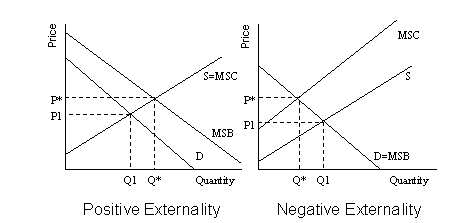The City of Fort Collins just did something sort of weird. In August, the Fort Collins City Council passed an ordinance that requires retailers to start charging for disposable bags, a.k.a. plastic and paper bags*. The fees go into affect on April 1, 2015. You can read the entire ordinance here or a more palatable FAQ here, but the main points are:
- Retailers are to charge customers a minimum of $0.05 per disposable bag they use.
- The fee will go to the retailer.
- At least 50% of the fee must go toward providing free reusable bags to customers as the retailer sees fit.
- Retailers must get permission from the customer to give them disposable bags.
- Some exceptions to this rule include:
- Restaurants
- Farmer's Markets
- Bulk items
- Bags containing raw meat, frozen foods, or unwrapped items such as bakery goods
- Prescription medicines
- Newspaper delivery bags
But why is this a concern? Why is this a thing?
Plastic Bags are Bad.
Each year, we use billions of them as a planet. Disposable in nature, these bags accumulate in landfills, or blow away in the wind and end up as litter and trash in the ocean. This pollutes our oceans, and make it easy for wildlife to mistake the plastic deathtraps as food, which doesn't do much for their digestive systems. Furthermore, these bags take a very long time to decompose in landfills. Even though this is a very rough description of the problem, all of these factors mean that the problem is only growing as time progresses.
So again: plastic bags are bad. And it seems like the simplest solution would be to simply stop using them. Ban them. Prevent people from using them to carry their groceries and purchases home.
But it isn't that simple for a couple of reasons:
- People don't like being told what to do. People don't respond well to being outright told what they can and can't do. They want to be asked if they want their milk in a bag at the grocery store.
- People need to carry their purchases in something. Think of something as simple as going to the grocery store. Think of how full your basket is as you wheel it toward the check out stand. Now think of how you would get all of that home without something to carry them in. And then try and figure how you would do that on the city bus, or on a bike. Yeah...
- Plastic bags are cheap and convenient. It is simple to suggest the solution of switching to another reusable or more recyclable/decomposable container to carry everything in. This is the best solution, of course, but plastic bags are so cheap and convenient. Plastic bags ensure that people don't need to remember their reusable shopping bags every time they need to stop by the store. They are cheaper than boxes or paper bags. In short, they are the cheapest solution to people's laziness and forgetfulness.
But they are still bad. So if we can't ban them, then how can we get people to stop using plastic bags?
Economics Has an Answer (And Duct Tape)
If Economists had tool boxes, incentives would be their duct tape. Incentives can fix everything (except a leaky pipe).
Externalities
In society, there are times when we demand more of a good or service than we really ought to. Examples of this include fast food, or cigarettes. The opposite is also true, where we don't demand as much of something as we ought to. This happens with things like education. The technical term for this phenomenon is an externality. For all you budding economists, you can see this concept in this chart:
Now Back to Discussing an Economist's Duct Tape
The concept of the Economic incentive is typically put into action through government policy that hits people/corporations where it often hurts the most - their wallet. In the simplest terms, this looks like using taxes to increase the market price for things that are bad for society - like pollution - and provide subsidies to make good things cheaper - like education. This use of incentive causes the equilibrium quantity of 'bad' things to decrease, and the market equilibrium quantity of 'good' things to increase.
What does that have to do with plastic bags?
It is clear that society demands too many plastic bags. With the previous section in mind, one logical policy solution to incentivize people away from using so darn many plastic bags is to charge money for them and assign a cost to the convenience they provide. Within this, some people will still be willing to pay a price for the convenience they provide, but other people will choose to avoid paying for plastic bags by bringing reusable bags or other containers to carry their purchases in. Depending on how expensive those bags are, more people may make the choice to start bringing their own bags. (In Economics-speak: basic supply and demand.)
The result? Those people who are bringing their own bags aren't using the plastic ones, which leads to fewer plastic bags left to float away in the breeze. Huzzah, victory! (We deserve a gold star.)
Assessing the Pros and Cons
Of course, as with every policy solution, there are pros and cons to this policy solution. Here is a summary:
Pros:
- People use fewer plastic bags.
- Pollution is reduced.
- Reusable shopping bags are less likely to break compared to their thin, plastic counterparts.
- People have a choice in whether they give up plastic bags or not.
- People may forget their reusable shopping bags at home, anyway. I know I do.
- With regard to cloth reusable shopping bags, if they are not regularly washed, it increases the chance of spreading food-born illnesses such as Salmonella if other foods are put into bags that once contained raw meat or vegetables.
- They cost money, which may create an additional burden on low-income individuals and families.
*This article primarily discusses why plastic bags are bad, even though most 'bans' address both plastic and paper bags. Plastic bags are worse than paper bags in terms of environmental sustainability, yes. Although paper bags are recyclable and biodegradable, they are still targeted by these bans because they create waste and they create incentive to use some sort of disposable bag. Also, the processes used to make paper bags is relatively resource-heavy.






No comments:
Post a Comment